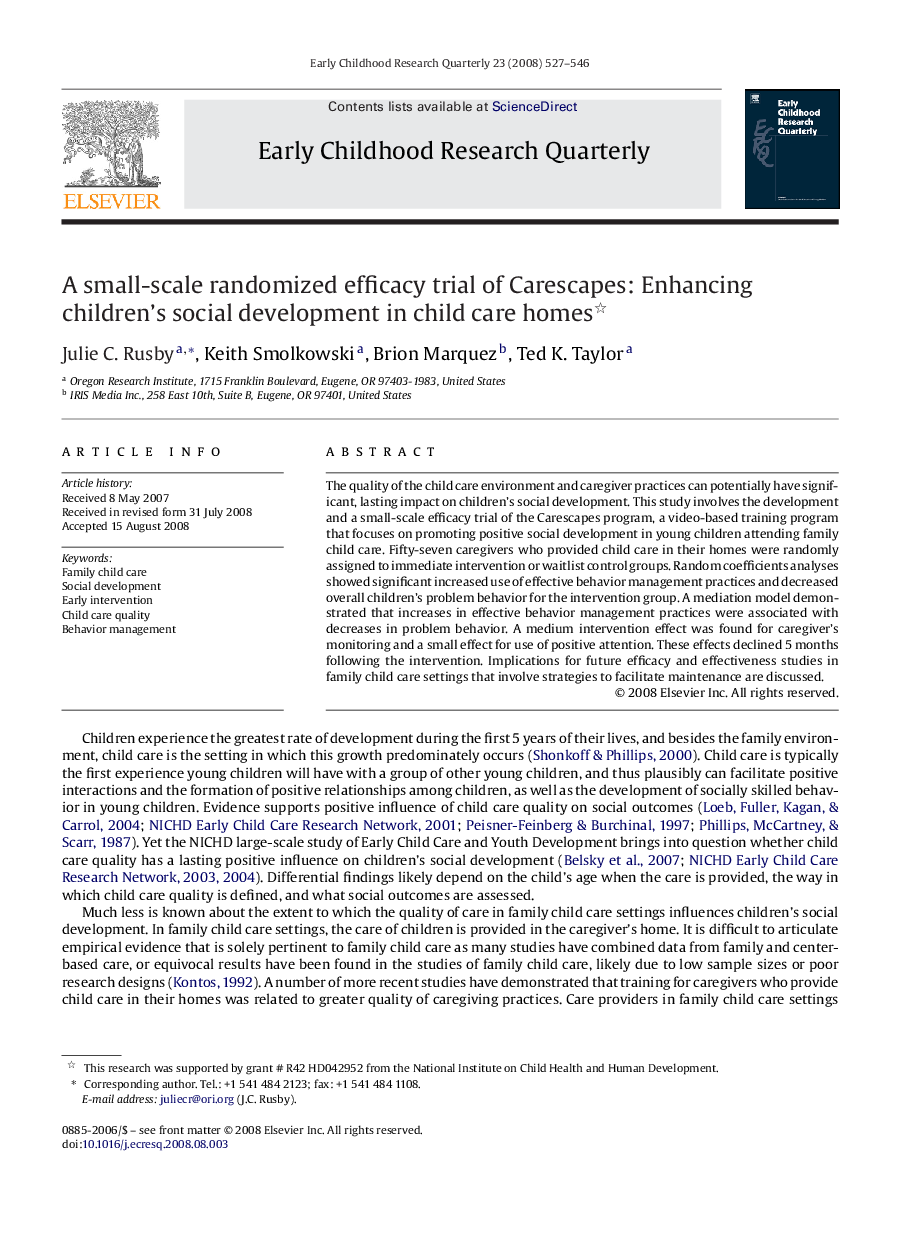| Article ID | Journal | Published Year | Pages | File Type |
|---|---|---|---|---|
| 354087 | Early Childhood Research Quarterly | 2008 | 20 Pages |
The quality of the child care environment and caregiver practices can potentially have significant, lasting impact on children’s social development. This study involves the development and a small-scale efficacy trial of the Carescapes program, a video-based training program that focuses on promoting positive social development in young children attending family child care. Fifty-seven caregivers who provided child care in their homes were randomly assigned to immediate intervention or waitlist control groups. Random coefficients analyses showed significant increased use of effective behavior management practices and decreased overall children’s problem behavior for the intervention group. A mediation model demonstrated that increases in effective behavior management practices were associated with decreases in problem behavior. A medium intervention effect was found for caregiver’s monitoring and a small effect for use of positive attention. These effects declined 5 months following the intervention. Implications for future efficacy and effectiveness studies in family child care settings that involve strategies to facilitate maintenance are discussed.
